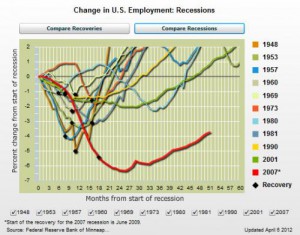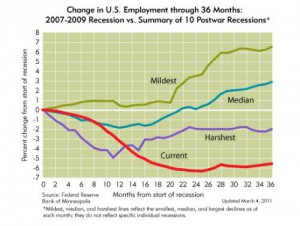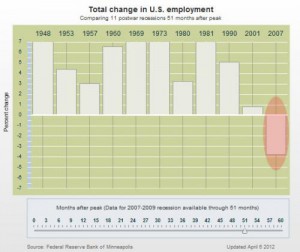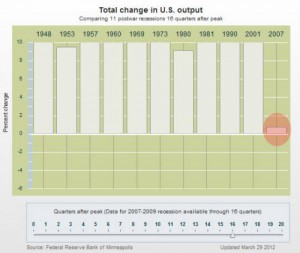First US Generation to Grow Up Legally Drugged
Mapping the Online Mind of the Norway Bomber & Shooter

A dirty deal: Uzbek dictator ‘has UK over a barrel'
Karimov demands official visit in logistics deal over Britain's pull-out from Afghanistan
BRIAN BRADY , JONATHAN OWEN, Independent, SUNDAY 08 APRIL 2012
Britain is bargaining with one of the world's most brutal dictators because we need to use his country as a transit route to bring thousands of tons of military equipment home from Afghanistan.
Senior officials admitted yesterday that Uzbekistan's President Islam Karimov had the UK “over a barrel”, after his country emerged as the favoured route home when British forces are withdrawn from Afghanistan by 2014.
Continue reading “Chuck Spinney: The Afghanistan Disaster Part II – The Long Hard Costly Exit”

The PR disasters over the last three months — including pictures of American troops urinating on Afghan corpses, the burning of Qurans, and the massacre of Afghan civilians, including women and children, by at least one deranged American soldier — have morphed into a grand strategic debacle. From the perspective of the Afghan insurgency, these are gifts that will keep on giving.
Why do I use the modifier grand strategic?
Because these incidents have (1) increased the moral strength of the Afghan insurgents by handing them a coup to rally supporters and attract the uncommitted to their cause. They also widen the existing rift between the United States military and the Karzai government, which in any case is viewed by many Afghans as a corrupt, illegitimate, quisling lapdog of the US. And (2), they are visibly weakening the rapidly crumbling solidarity at home. Recent polls in America, for example, suggest the already overwhelming majority of Americans who now think it is time to exit the Afghan enterprise is growing again. Moreover, an increasing number of politicians and editorial boards are now beginning to reflect the views of the majority of American people. These incidents have magnified the already widespread perceptions among Afghans of a grotesque mismatch between the ideals we profess uphold and what we do.
Continue reading “Chuck Spinney: The Afghanistan Disaster Part I – When the War Comes Home”

n a five-four ruling this week, the supreme court decided that anyone can be strip-searched upon arrest for any offense, however minor, at any time. This horror show ruling joins two recent horror show laws: the NDAA, which lets anyone be arrested forever at any time, and HR 347, the “trespass bill”, which gives you a 10-year sentence for protesting anywhere near someone with secret service protection. These criminalizations of being human follow, of course, the mini-uprising of the Occupy movement.
Is American strip-searching benign? The man who had brought the initial suit, Albert Florence, described having been told to “turn around. Squat and cough. Spread your cheeks.” He said he felt humiliated: “It made me feel like less of a man.”
In surreal reasoning, justice Anthony Kennedy explained that this ruling is necessary because the 9/11 bomber could have been stopped for speeding. How would strip searching him have prevented the attack? Did justice Kennedy imagine that plans to blow up the twin towers had been concealed in a body cavity? In still more bizarre non-logic, his and the other justices' decision rests on concerns about weapons and contraband in prison systems. But people under arrest – that is, who are not yet convicted – haven't been introduced into a prison population.

Peter Ressler, Monika Mitchell
5 Stars
Co-authors Peter Ressler and Monika Mitchell have been 20-year Wall Street insiders as partners in an executive search firm. Their book is a page-turning account of the 2007-8 meltdown and continuing unsolved issues that will inevitably lead to the next crises. Woven throughout their analysis are conversations with dozens of top executives from Lehman, Goldman Sachs, Morgan Stanley, AIG, Deutsche Bank, UBS, Citibank, Bank of America, Wells Fargo and many hedge funds and private equity firms.
Only the executives' first names are used (for obvious reasons), which makes their recorded interviews with the authors more revealing, with all the vivid expletives un-redacted. We hear first-hand of how Wall Street's culture actually worked based on the “buyer beware” treatment of sophisticated clients. Pension funds were considered “big boys” who should do their own due diligence and against whom it was OK to bet that the securities sold to them would blow up. These were the market makers who, unlike the partnerships of yore, regularly took both sides of deals with their often unsuspecting customers while pushing ratings agencies to stamp these toxic products as triple-A. The prevailing culture is reflected in their language: “eat what you kill,” “ripping the face off” clients and the jungle rule of “survival of the fittest” (often incorrectly associated with Charles Darwin rather than originally coined by Herbert Spencer, a British economist of that era who wrote for The Economist).

51 Months After The Start Of The Recession, Here Is The Report Card
ZeroHedge, 04/06/2012
Recovery? What Recovery? 4 years after central banks have progressively injected over $7 trillion in liquidity into the global markets (and thus, by Fed logic, the economy), and who knows how many trillion in fiscal aid has been misallocated, to halt the Second Great Depression which officially started in December 2007, the US “recovery” is the weakest in modern US history! How many more trillions will have to be printed (and monetized) before the central planners realize that fighting mean reversion by using debt to defeat recore debt, just doesnt't work? Our guess – lots.
Incidentally, the US has now generated 3 million jobs since the trough of the recession in September 2010, until which point it had previously lost 8 million. Unfortunately, since the real labor force has grown by 4.6 million over the same period, or at the conventionally accepeted 90,000 labor pool entrants per month for 51 months, despite what the BLS may say, because America is after all growing, this means that the Obama administration has created a negative 1.6 million jobs net of demographics, which in turn have cost the US a modest $5.1 trillion in new debt, or an even modest $3.1 million in debt for every job lost.
Chart 1 – the current “recovery” in the context of all previous ones:

Chart 2 – Min, Max and Average… and now

Chart 3 – in bar chart format

Chart 4 – There is good news: 16 quarters after the start of the recession, US output has turned positive. Just barely.

Phi Beta Iota: What is one to do when the government, with the full complicity of the two parties that monopolize power through various illegitimate means, the full complicity of the five major media corporations whose “mouthpieces” bury their intelligence along with their integrity, all lie to the public? Have we really become a nation of idiot sheep? At what point is the government impeachable for lies to the public?
See Also:
THE OPEN SOURCE EVERYTHING MANIFESTO: Transparency, Truth & Trust

WEEKEND EDITION APRIL 6-8, 2012
As long as the general neoliberal framework, with all its elements — the hegemony of the capitalist classes and financial institutions, the complicity of senior management, financialization and globalization — remains unchallenged by “financial repression”, of the kind that took place in the US during the postwar period, all attempts to fight the process of deindustrialization, no matter how successful, will continue to be retrograde. They undermine what remains of the social gains made in the preceding decades, without making any clear contribution to the re-establishment of growth and the rebuilding of employment.
GÉRARD DUMÉNIL and DOMINIQUE LÉVY are economists and co-authors of The Crisis of Neoliberalism, Harvard University Press, Cambridge (Massachusetts), 2011/.
Phi Beta Iota: This is a very important article. A government with intelligence and integrity would re-industrialize using the Open Source Everything ethos combined with the localized food-energy-water model. As the authors point out, as long as criminal mind-sets continue to dominate government and industry, re-industrializing in the old form will make no difference to the public at large.
See Also:
THE OPEN SOURCE EVERYTHING MANIFESTO: Transparency, Truth & Trust